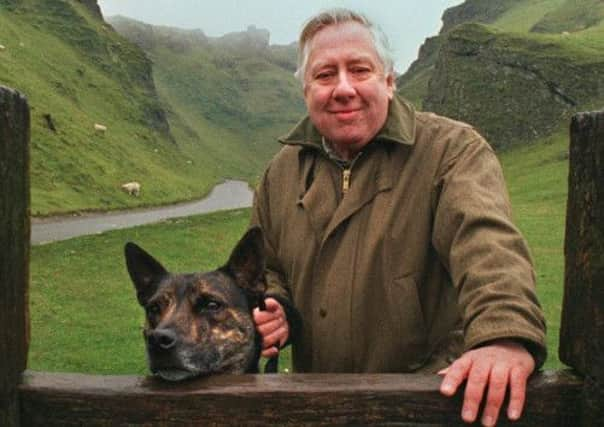Labour veteran turns eye on epitome of our aristocracy


THE idea of Lord Hattersley, a staunch socialist and former deputy leader of the Labour Party, writing about the English aristocracy might seem strange to some people.
But he dismisses the suggestion that it’s an odd subject for him to choose. “I’ve written about Nelson and I’m not a sailor and I’ve written a biography of Lloyd George, but I’m not a Liberal,” he says.
Advertisement
Hide AdAdvertisement
Hide AdIt’s a fair point. For while the 81-year-old Yorkshireman is seen by many people as a crusading and principled politician, he has also carved out a reputation as a successful writer whose subjects range from John Wesley to the Salvation Army.
In his latest book he turns his attention to one of England’s most historic families, the Devonshires, whose estates include Chatsworth House and Bolton Abbey. The Devonshires: The Story of a Family and a Nation, traces the story of the Cavendish family and the first eight Dukes of Devonshire. It goes back to 1381 – when Sir John Cavendish, Lord Chief Justice of England, was killed during the Peasants’ Revolt – right through to 1906, when the Duke of Devonshire’s resignation brought down the Tory government.
Hattersley examines the family’s fortunes and misfortunes and shows how its big personalities have mirrored the life of the nation, something he’ll be discussing when he appears at the Ilkley Literature Festival on Thursday, and later this month at the Off the Shelf festival in Sheffield.
He was given access to family archives and with the help of some previously unpublished material he reveals how the dynasty made – and lost – fortunes, pioneered the railways, and came to terms with changing times.
Advertisement
Hide AdAdvertisement
Hide Ad“They are the only family involved in the history of England continually for 500 years,” he says. “They might not have been always been as important as the Cecils and the Greys, but the Devonshires were involved from the time of Queen Elizabeth right through to the reign of Queen Victoria.”
It is, at times, something of a rollercoaster ride. The father of the first Earl dissolved monasteries for Henry VIII, while Georgiana, wife of the fifth Duke, scandalised Regency society.
They epitomised the English aristocracy. “It was their duty to protect people on their land from tyranny, popery and invasion, and because they owned the land they didn’t feel they had to conform to normal conventions,” he says.
“The Fifth Duke of Devonshire was woken in his bed because a fire had broken out, to which he replied ‘well put it out’ and went back to bed.
Advertisement
Hide AdAdvertisement
Hide Ad“I quite admire that kind of temperament because I’m the exact opposite.
“If that had been me I would have jumped out of bed and run around panicking.”
There’s an array of colourful characters in the book, including the Seventh Duke of Devonshire who briefly became Prime Minister.
“He said he would be Prime Minister for as long as it amused him and in the end it only amused him for a few months.”
Advertisement
Hide AdAdvertisement
Hide AdThen there’s Joseph Paxton, the Devonshires’ gardener. “He was quite extraordinary. He was an architect who designed Crystal Palace, but he was also an MP, director of the Midland Railway and remained head gardener at Chatsworth.”
It’s a fascinating story and so, too, is Hattersley’s. He was born in Sheffield into what he calls a “political” family. “I knew I was Labour for tribal reasons in the same way I knew I was Yorkshire County Cricket Club and Sheffield Wednesday.”
He worked for a time as a journalist writing for the Sheffield Telegraph and the Northern Echo, when Harold Evans was in the editor’s chair. However, politics was his true calling and he became MP in 1964.
He served in Jim Callaghan’s Cabinet and later became deputy leader of the Labour party and says his proudest achievement was keeping the party afloat in the early 1980s when it was on the verge of imploding.
Advertisement
Hide AdAdvertisement
Hide Ad“People were going to the left and others were leaving like the Gang of Four, who were all friends of mine. But I stayed and kept the Labour Party together.”
He was made a life peer in 1997 after stepping down as an MP, but believes politics has changed for the worse.
“I’m an ideological politician and too many people want to take the politics out of politics in favour of good administration, whereas I think the electorate should have a proper choice.”
Roy Hattersley is appearing at the Ilkley Literature Festival on October 17 and Off the Shelf, in Sheffield, on October 28.